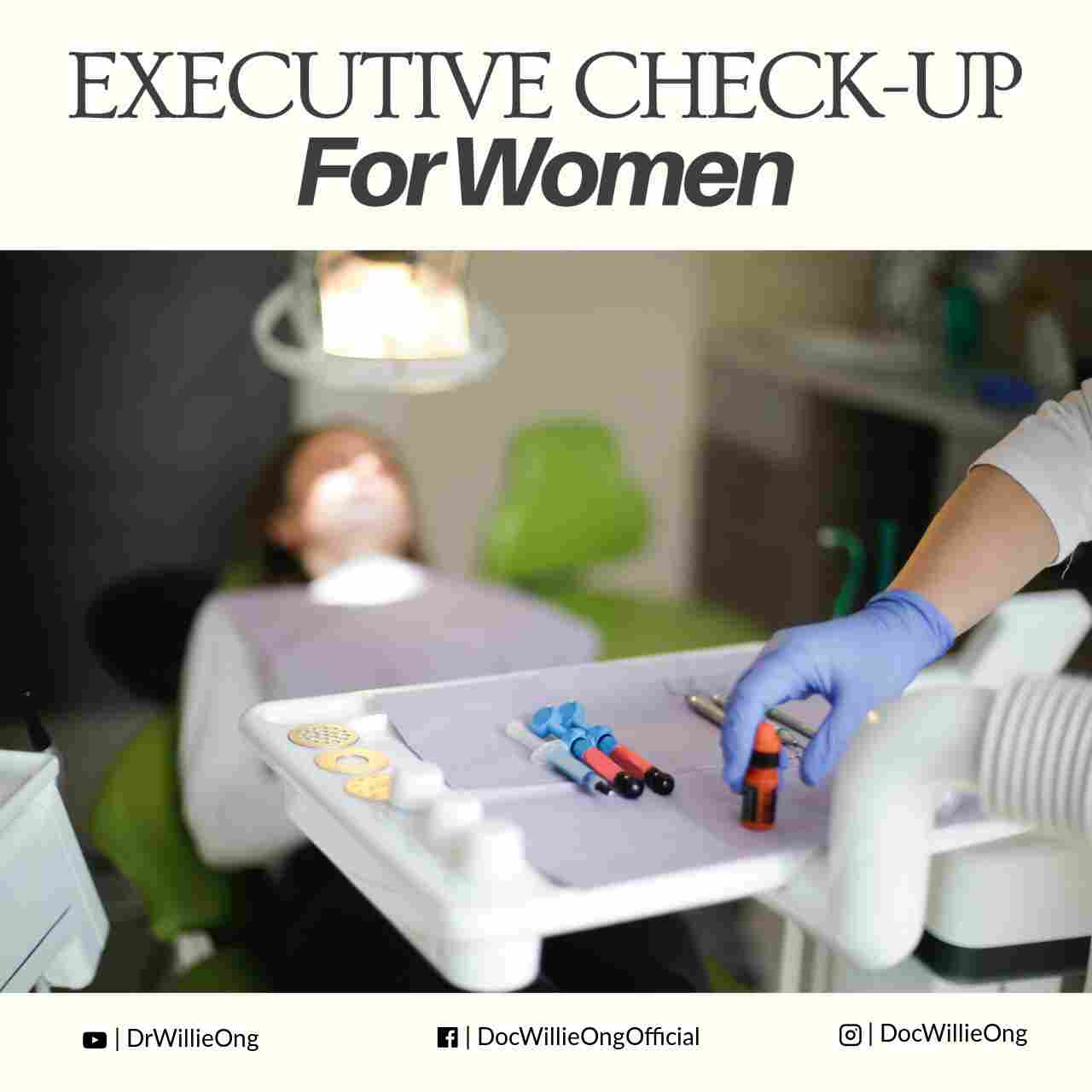By Dr Willie Ong (Internist-Cardiologist)
All women over 40 need a yearly check-up. For those who are overweight or those with a strong history of heart disease, diabetes or early deaths, you need to see a doctor even if you’re younger than 40. Here are the top ten things to check:
Check your breasts.
The American Cancer Society recommends that all women over 20 years of age should check their breasts monthly. If you are unsure, consult a surgeon or OB-gynecologist to check your breasts. Breast cancer is the number one cancer killer in women. Stand in front of the mirror and check your breasts for dimpling, nodes and other irregularities. For most women, you need a mammogram and/or ultrasound of the breasts, starting at age 40. Those with a family history of breast cancer may start screening at age 30.
Get a cancer check-up.
Next to breast cancer, ladies should be on guard for cancers of the cervix, uterus and ovaries. You need a regular Pap’s smear test and a pelvic examination with your OB-gynecologists. If everything is normal, the tests should still be done every three years. You should particularly be careful if you have multiple partners, or if your spouse fools around. Examine your thyroid, lymph nodes (check for nodules), oral region, skin (for black marks) for any suspicious masses.
Stop smoking.
Twenty percent of Filipino women smoke and the numbers are rising. This translates into many deaths due to lung cancer. If you’re pregnant, smoking is twice as dangerous for you and your baby.
Care for your heart.
Maintain a healthy lifestyle. Remember the mnemonic, “sex-hdl”. This stands for S – quit Smoking, E – stop overEating, X – eXercise regularly, H – treat High blood pressure, D – treat Diabetes, and L – control you Lipids (cholesterol levels).
Check your weight.
Surprise, surprise! Studies show that more Filipino women are overweight than men. Two out of five women are overweight, especially middle-aged women. So ladies, control your weight if you want to avoid arthritis, diabetes and heart disease.
Know your BP.
If your BP is greater than or equal to 140 over 90 mmHg, then you have high blood pressure and need a check up. For those with BP below 140/90 but higher than 120/80, you should be careful and monitor your BP. Reducing salt intake and attaining your ideal body weight can help control your blood pressure.
Limit work stress.
Studies show that chronic stress elevates the blood pressure and makes the blood thicker. Tension can also contribute to heart attacks and ulcers. Take it easy, worry less and be happy.
Take a calcium tablet.
After menopause, women need to take a calcium supplement to protect their bones. A good option is calcium lactate with vitamin D. Drinking skim milk also helps.
Avoid urinary tract and vaginal infections.
Because of the unique anatomy of the female genital organ, ladies are more prone to urinary tract infection than men. This is because the urethra in women is shorter than that of the males. Thus, bacteria can easily penetrate the bladder. So make sure you wash thoroughly after urination. After defecation, wipe the tissue backwards and not forward where some dirt can enter the vaginal area. After sex, women are advised to void once to prevent urinary tract infections.
Get a basic laboratory exam.
Here are the basic tests for women:
Blood exams: Complete blood count, creatinine (check the kidneys), uric acid (check for gout), cholesterol (high fat diet), fasting blood sugar (check for diabetes), and SGPT (check the liver).
Urinalysis: Check for urinary infections and kidney problems.
Electrocardiogram: Check for heart problems.
Chest x-ray: Check for lung and heart problems, particularly for smokers.
Ladies, it’s time to get a check-up. Your doctors are there to help you and answer your questions. Good luck!



